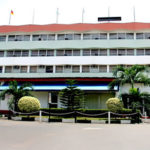In essence, the overall objective is data harmonisation. This is ordinarily a welcome development. It is within the precinct of international best practice for government agencies to have a common data base and synchronised information system. And the advantages are many. In addition to eliminating waste associated with disparate deployment of multiple technologies to capture demographic and biometric details of citizens by different governmental institutions, data synchronisation also tends to guarantee the fidelity, integrity and hence the credibility of data and information. The positive implication of this is what Lanre Osibona, the Senior Special Assistant to the President on Information and Communication Technology (ICT), described as giving Nigeria “a leap on security matters, innovation, social and financial inclusion as well as financial and national planning.”
The official goal of e-government and its numerous benefits which data harmonisation brings within reach is laudable and deserves the deployment of human and material resources to pursue. Hopefully, it will put paid to the recurring embarrassment of different government agencies churning out different figures on vital statistics in the country. However, to make NIN a condition for issuance and renewal of international passport, the NIMC must have the capacity to release it at a much faster rate than it is currently doing, and indeed, official data harmonisation will need to move at a faster pace. But there is nothing on the ground to suggest that this can happen other than the seeming official commitment which, alone, is not enough to guarantee the desired results in terms of number and time. This should be understood against the backdrop of the fact that even with the active collaboration of the World Bank and Melinda and Bill Gates, less than 20 million Nigerians have had their data captured. We acknowledge that there was a quantum leap from 5 million in NIMC records about two years ago to about 20 million currently but even at that seemingly impressive rate, the objective of capturing 180 million Nigerians over a period of three years seems far-fetched. Capacity is a critical factor and should have been considered before proposing to tie NIN to issuance and renewal of the international passport. The NIMC can hardly keep the pace required and the consequence is that issuance and renewal of international passport by the NIS under the officially imposed constraint may stimulate sharp practices, including bribery and corruption. Many Nigerians are already distraught over the prevailing economic conditions in the country. The government should not break the threshold of people’s tolerance by unwittingly adding to their burden. The process of registration in the NIMC should be decentralised in order to obviate the challenge of limited capacity. Registration should be made much easier and at a faster rate than it is done currently.
Without doubt, the pursuit of e-government, digital economy and facilitation of ease of doing business by Nigerians and foreign investors, among others, which are at the heart of the introduction of a centralised data system, is quite alluring. And the benefits are really invaluable when those important objectives are attained. Nonetheless, they require tremendous amount of painstaking planning and preparations, and of course money and time. It is imperative that the planning and preparations, including timelines for significant milestones, are well thought out so that implementation does not impose unintended and avoidable burdens on the citizenry.
WATCH TOP VIDEOS FROM NIGERIAN TRIBUNE TV
- Let’s Talk About SELF-AWARENESS
- Is Your Confidence Mistaken for Pride? Let’s talk about it
- Is Etiquette About Perfection…Or Just Not Being Rude?
- Top Psychologist Reveal 3 Signs You’re Struggling With Imposter Syndrome
- Do You Pick Up Work-Related Calls at Midnight or Never? Let’s Talk About Boundaries







